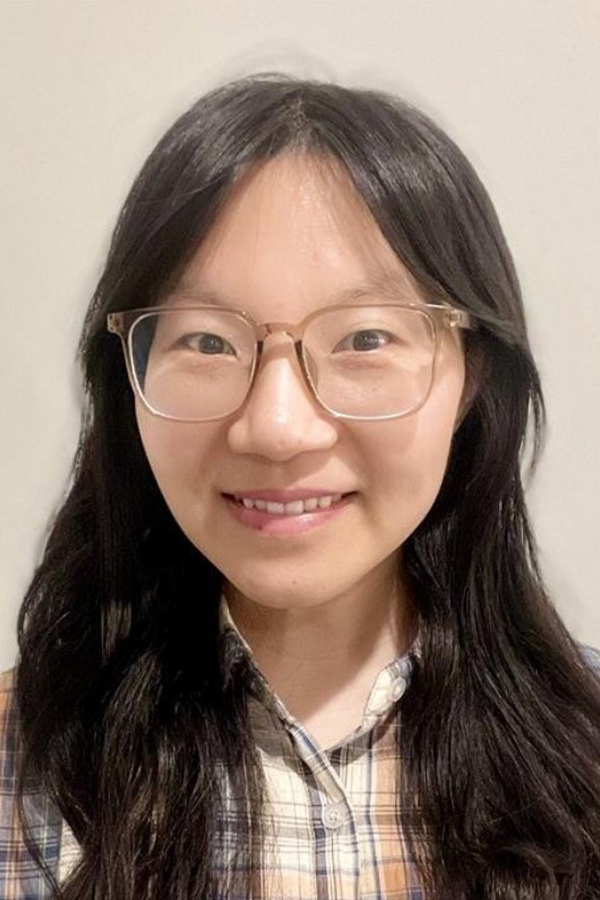 “You need to know how to make dumplings – one day you will serve your in-laws.” This was the advice Jie Wang, M.S. ’23 (Applied Data Science), often heard growing up in a small, impoverished village in northeast China. “In their world, this was practical wisdom,” she said. “My parents shared it out of care – they wanted to prepare me for life, even in the small ways they knew.”
“You need to know how to make dumplings – one day you will serve your in-laws.” This was the advice Jie Wang, M.S. ’23 (Applied Data Science), often heard growing up in a small, impoverished village in northeast China. “In their world, this was practical wisdom,” she said. “My parents shared it out of care – they wanted to prepare me for life, even in the small ways they knew.”
But even as a child, Wang imagined a life beyond narrow expectations. “I thought, ‘I’m a bird with wings, I’m meant to see farther and embrace wider possibilities.’’”
That vision has been a red thread through a varied career that began in medicine. After earning an M.D. from Hunan University of Traditional Chinese Medicine in 2011, Wang practiced as a doctor but soon realized she wanted to heal people in a different way—by understanding the mechanisms behind disease and uncovering new strategies for treatment. “The mission is the same,” she explained.
Wang turned to research as another way to heal. “The mission is the same,” she explained. “But instead of treating individual patients, I try to uncover the mechanism and therapy targets of disease.”
She came to the United States in 2015 as a Ph.D. candidate in medicine at Qingdao University, joining a collaborative research project. After completing her doctorate in 2018, she continued as a postdoc and research scientist, publishing prolifically on immunology and cancer.
As she witnessed the rapid integration of technology into biomedical science, Wang began to notice a critical gap. The output was always data—something she did not yet have the skills to work with. “I wanted to discover the story hidden within the data,” she said. “And with my medical background, I could help interpret it in meaningful ways.”
Wang found the perfect fit for that next step at Syracuse University. “For the first time, I felt welcomed, even with my still-developing language skills,” she recalled of joining the Applied Data Science program. “The admissions committee recognized not only what I had accomplished, but also my potential for growth. They granted me an exemption from the language exam, and that acceptance arrived on Thanksgiving Day.”
A new world of discovery unfolded. While working full-time as a research scientist, Wang completed the program in just 18 months, with a perfect GPA. She treated each course assignment as a chance for exploration. Two of these projects led to peer-reviewed publications in Frontiers in Endocrinology (2023) and Breast cancer research and treatment (2023), revealing biomarkers and the gene regulatory networks underlying diseases. These were not merely academic exercises—they represented a new capability to extract meaningful insights from complex biomedical data, further reinforcing the integration of medicine and computational science in her research. “Now I can see patterns and possibilities that were invisible before,” she said.
Today, Wang has taken her research to a new level. As a senior bioinformatic scientist with The Henry M. Jackson Foundation for the Advancement of Military Medicine, she harnesses biomedical data science to explore the mechanisms in diseases, such as metabolic diseases, cancer, and HIV—while staying true to her mission of turning data into pathways for healing.
Wang’s path exemplifies the power of interdisciplinary training. Her medical foundation enables her to ask the right biological questions, while the analytical mindset empowers her to explore them in new ways. The wings she imagined as a child have carried her far—and Syracuse University helped her discover how high she could fly.
As Wang takes stock, she looks back in gratitude to her youth. “Those difficulties helped make me centered and resilient, with a calm and open heart ready to meet whatever life brings.” she said. “If you want to do something, just do it. You’re only going to regret what you have not done.”
